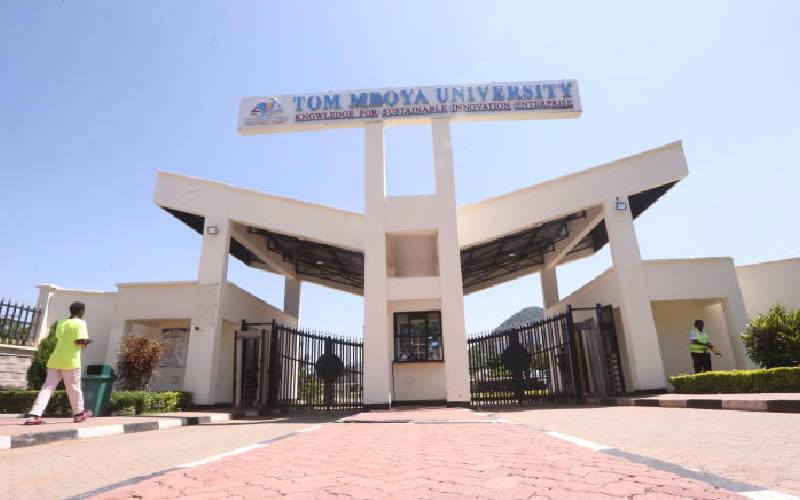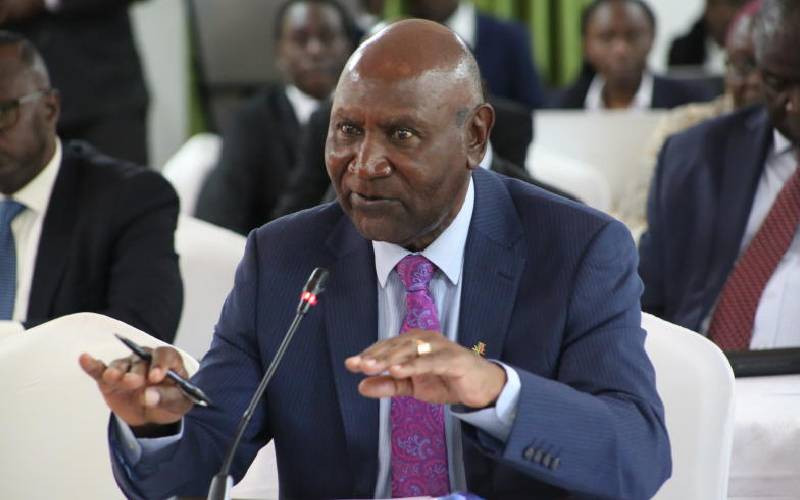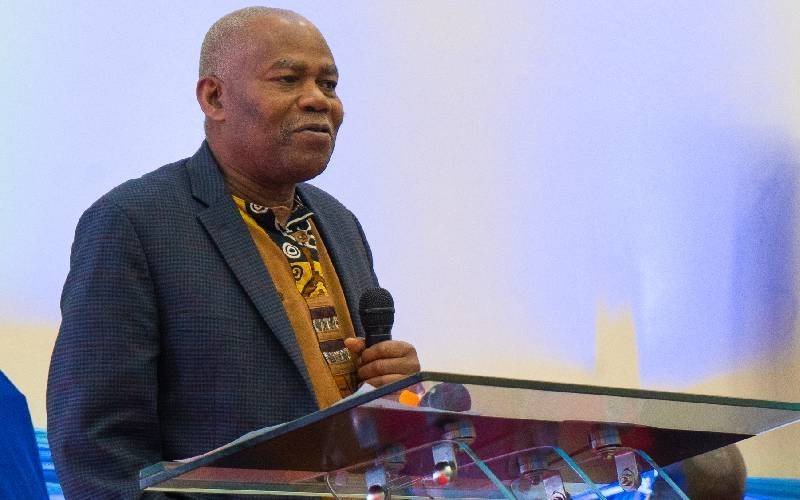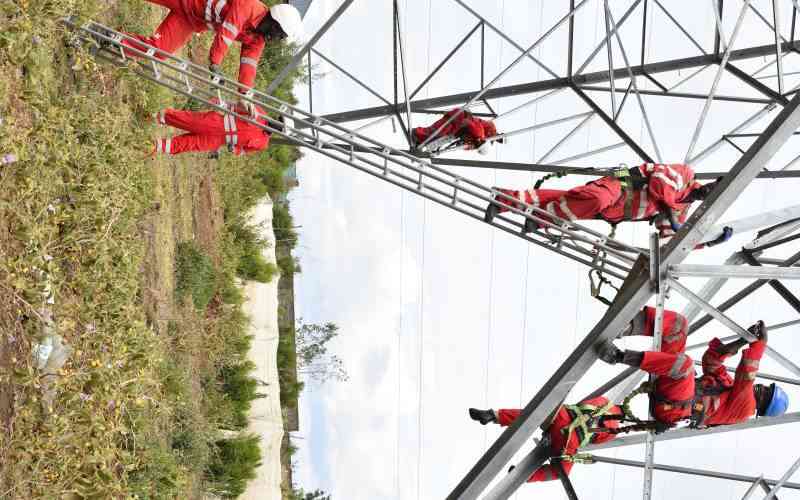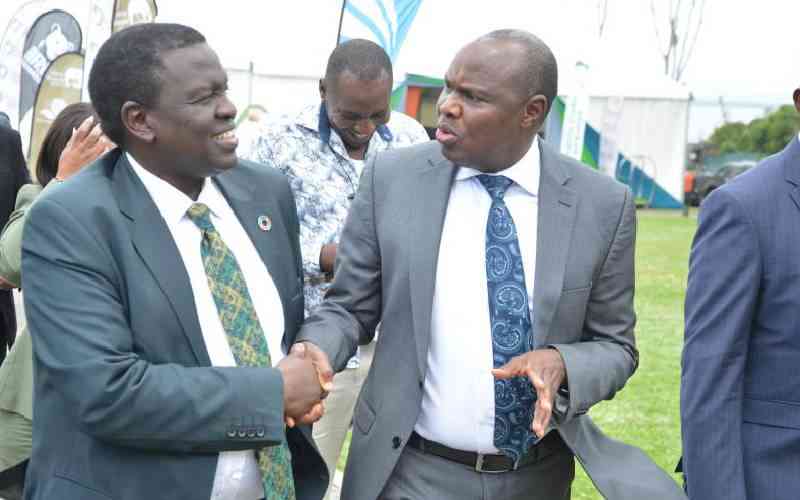
Head Public Service Felix Kosgey (right) and former KWS Director General Julius Kipngetich during the 2nd Wildlife Scientific Conference at Lake Naivasha Resort, on September 23, 2025. [Antony Gitonga, Standard]
The government requires more than Sh1.2 billion to compensate families whose kin were killed by wild animals in the last two years.
With the cases of human-wildlife conflict on the rise, the government has termed the trend worrying and blamed the incidents on climate change and increased population.
This emerged during the Second Wildlife Scientific Conference in Lake Naivasha Resort, where more than 300 scientists converged to discuss the current status in the wildlife sector.
During the conference, changes in land use, infrastructural development, increasing human and livestock population and habitat loss were identified as some of the major challenges facing wildlife conservation.
Head of Public Service Felix Koskei warned that challenges facing wildlife conservation were on the rise, with climate change playing a major role.
Koskei said most of the challenges could be addressed through research and challenged scientists to up their game despite low funding for the sector.
“Many of these challenges, which include loss of habitat, closure of wildlife corridors, and poaching, can be addressed through science-driven data,” he said.
Addressing the press on the sidelines of the conference, the Head of Public Service admitted that funding remained a challenge in research but was quick to note that the government was working on it.
“Wildlife science is very critical in the conservation of our wild animals and game parks, and more resources are needed towards this,” he said.
KWS Director General Erastus Kanga noted that in the last two years, the country recorded more than 26,000 cases of human-wildlife conflict.
Dr Kanga said of the cases, 255 people lost their lives while another 725 were seriously injured, with some suffering from lifetime injuries.
“For the government to compensate the 255 people who lost their lives, over Sh1.2 billion is required, and these are funds that could have gone to better use,” he said.
He said that in the period, more than 5,200 livestock were also killed by wild animals, and emphasized the need to engage the community in addressing the crisis.
Stay informed. Subscribe to our newsletter
Wildlife Research and Training Institute (WRTI) Director Patrick Omondi announced that they launched the registration of all endangered and endemic wildlife species in the country.
Dr Omondi said that WRTI was working on a national wildlife portal, which was part of identifying and addressing the challenges in the sector.
“Currently, we are reviewing data on the recently conducted census before releasing it in the next couple of weeks,” he said.
Tourism and Wildlife Cabinet Secretary Rebecca Miano, revealed that the government was working on a policy to introduce a wildlife regulator in the country.
“After engaging stakeholders, it has been decided that we require a wildlife regulator as part of protecting wildlife and improving conservation,” she said.

